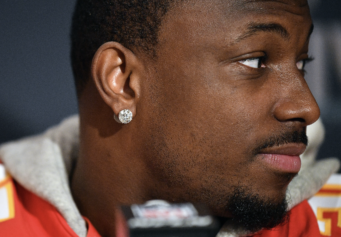Former longtime Eagles running back Brian Westbrook is experiencing the effects of repeated hits to the head during his nine-year NFL playing career. At only 33 years of age, the two-time All-Pro says he's already having trouble remembering names, recalling facts and retaining new information. He says he hopes the symptoms don't continue to progress, which is all he really can do if he's suffering from irreversible head trauma.
Along with former Philadelphia Flyers captain Keith Primeau, five-time MLS All-Star Taylor Twellman, former NFL linebacker Jim Nelson and other head safety advocates, Westbrook was part of a panel discussion on the "Concussion Conundrum" Friday at Villanova University.
Part of Westbrook's mission is to change the culture of sports that sacrifices anything for the sake of winning, even brain injuries. Westbrook tells the story of dealing with LeSean McCoy when he missed four games last season due to a severe concussion. All Shady coulld think about was getting back on the field because the Eagles were struggling so badly.
From the Associated Press:
Philadelphia. Eagles running back LeSean McCoy missed four games last season because of a severe concussion. He refused to sit out the final two games of the season for further rest because he called himself a "competitor."
McCoy told Westbrook how he wanted to play only a couple of weeks after he was hurt. Westbrook asked him, "Can you run? Can you practice? Can you think without having a headache." McCoy answered no to all.
"He said, 'But we're losing and I've got to get back out there,' " Westbrook said.
Westbrook said the Eagles were smart not to clear McCoy until he was ready. And he credited doctors and the training staff for the way they treated his head injuries. But the athletes wondered if independent physicians – without undue pressure or assumed favoritism by teams – are the best option.
The NFLPA has long been skeptical of the league's team physicians, just because of the inherent conflict of interest of treating a "patient" who the employer ultimately needs to have on the field rather than somewhere in recovery mode. If anyone had the definitive answer to how football can be played safer and how these long term ramifications of brain trauma could be remedied, we'd all be able to breathe easier.
But at the very least, there has to be a culture change in which the player is viewed as a patient, and views himself that way, too, once he gets his bell rung.


